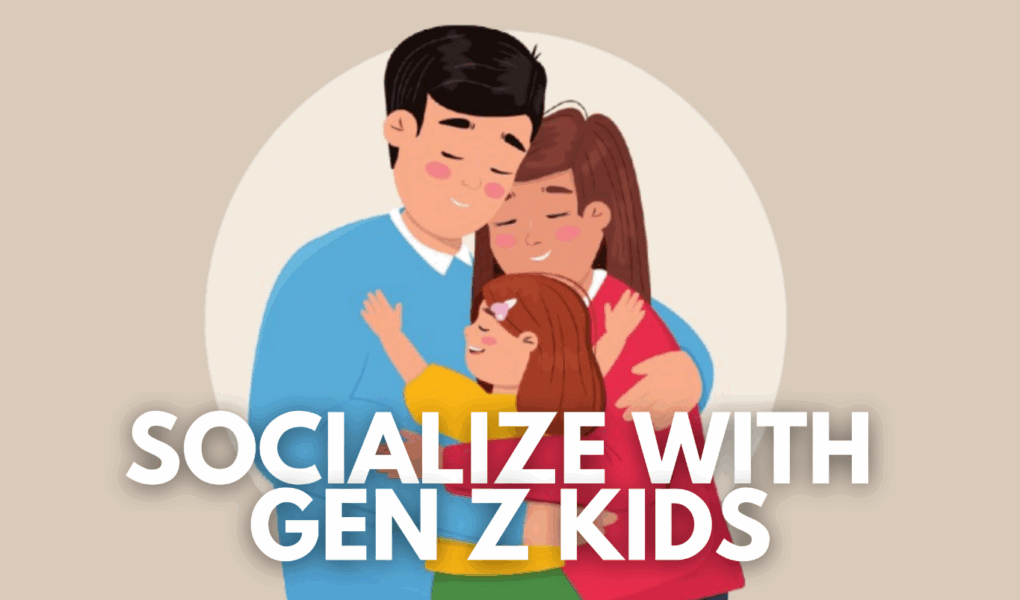Parenting in the age of Gen Z can feel like navigating uncharted territory. Born between the mid-1990s and early 2010s, Gen Z has grown up with smartphones, social media, and online gaming as everyday realities. For many parents, bridging the generational gap and building genuine connections with their Gen Z children can be both rewarding and challenging. The good news? With openness, curiosity, and a willingness to meet kids where they are, parents can foster strong, meaningful relationships that thrive in both the digital and real world.
Understanding Gen Z: A Unique Generation
Before diving into strategies, it’s important to understand what makes Gen Z unique. This generation is the first true group of digital natives. They are comfortable navigating technology, value diversity and inclusion, and are passionate about social causes. Gen Z is also known for being pragmatic, entrepreneurial, and highly connected-both online and offline.
Yet, despite their digital fluency, Gen Z kids crave authentic relationships with their parents and family. They want to be heard, respected, and supported as they navigate a complex, fast-changing world.
1. Embrace Gaming as a Social Bridge
One of the most effective ways for parents to connect with Gen Z is through gaming. For many Gen Z kids, video games are more than a hobby-they are a social lifeline. Games like Minecraft, Fortnite, Roblox, Among Us are not just about competition like GTCC Tournament; they’re about collaboration, creativity, and community.
How parents can get involved:
Ask to join in: Show genuine interest in the games your child plays. Ask them to teach you the basics or play together as a team.
Host family game nights: Rotate between digital and traditional games. This creates shared memories and opens the door for conversation.
Talk about gaming experiences: Ask about their favorite moments, in-game friends, and what they enjoy most. This shows you value their interests and helps you understand their world.
Gaming together can break down barriers, foster teamwork, and create opportunities for natural, relaxed conversations. Even if you’re not a gamer, your willingness to try can mean the world to your child.
2. Navigate Social Media Side-by-Side
Social media is central to Gen Z’s social life. Platforms like Instagram, TikTok, Snapchat, and YouTube are where they express themselves, connect with peers, and explore their interests. Rather than viewing social media as a threat, parents can use it as a tool for connection and guidance.
Tips for engaging with Gen Z on social media:
Get familiar with the platforms: Spend some time exploring the apps your child uses. Ask them to show you their favorite accounts, trends, or creators.
Discuss digital citizenship: Have open conversations about online safety, privacy, and kindness. Share your own experiences with social media-both positive and negative.
Encourage healthy habits: Help your child curate their feeds to focus on positive, supportive content. Set boundaries together for screen time and digital breaks.
By understanding and respecting your child’s online world, you demonstrate trust and create space for honest dialogue about the challenges and opportunities of social media.
3. Support Their Passions and Projects
Gen Z is a generation of creators and activists. Many are passionate about causes like climate change, mental health, and social justice, or pursue creative projects such as music, art, or coding.
How parents can support Gen Z interests:
Attend their events: Show up for school plays, art shows, gaming tournaments, or online streams.
Ask about their projects: Take an interest in what they’re working on, whether it’s a YouTube channel, a coding project, or a volunteer initiative.
Encourage exploration: Provide resources, encouragement, and a safe space for your child to try new things-even if they’re different from your own interests.
Supporting your child’s passions builds confidence, strengthens your relationship, and helps them develop a sense of purpose.
4. Spend Quality Time-Online and Offline
While Gen Z values digital connection, they also appreciate quality time with family. Shared experiences-whether virtual or in person-help build trust and create lasting memories.
Ideas for quality time:
Co-watch shows or movies: Pick a series or film to watch together and discuss afterward.
Cook or bake together: Try new recipes or recreate favorite dishes as a family project.
Go for walks or outings: Unplug and spend time outdoors, exploring nature or visiting local attractions.
Alternating between your favorite activities and theirs helps find common ground and keeps family time engaging for everyone.
5. Communicate With Empathy and Openness
Gen Z faces unique pressures, from academic expectations to social media anxiety. They value honesty, empathy, and authenticity in their relationships with parents.
Communication tips:
Listen without judgment: Let your child share their thoughts and feelings without immediately offering solutions or criticism.
Be vulnerable: Share your own struggles and mistakes. This models resilience and makes it easier for your child to open up.
Offer support, not lectures: Guide your child through challenges, but avoid “when I was your age” comparisons.
Empathetic communication builds trust and helps your child feel safe sharing their experiences with you.
6. Set Boundaries-With Flexibility
While Gen Z values independence, they also need structure. Set clear expectations around screen time, curfews, and responsibilities, but be willing to adapt as your child grows.
Collaborative boundary-setting:
Involve your child: Discuss rules and consequences together, so they understand the reasoning behind them.
Be consistent but flexible: Adjust boundaries as your child demonstrates responsibility and maturity.
Respect privacy: Trust your child with age-appropriate freedoms, but stay involved and available.
Healthy boundaries provide security while respecting your child’s growing autonomy.
7. Address Challenges Together
If your child struggles with mental health, bullying, or online issues, approach these challenges as a team. Watch for signs of distress-such as withdrawal, mood changes, or declining grades-and seek professional help if needed. Your ongoing support and willingness to get help can make a crucial difference.
8. Celebrate Diversity and Inclusion
Gen Z is the most diverse and inclusive generation yet. Embrace and celebrate differences in culture, identity, and perspective-both within your family and in the wider world. Encourage open conversations about diversity, equity, and inclusion, and model respect for all people.


